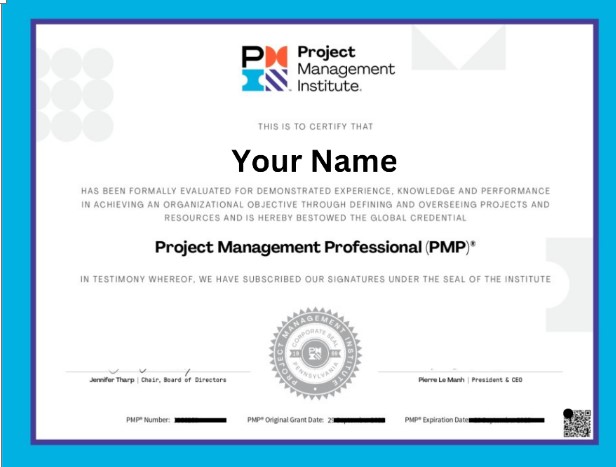A PMP® certification, according to PMI (Project Management Institute), is one of the most respected and sought-after titles in the field of project management. It shows that a person has reached a high level of knowledge, experience, and skill in managing projects. However, you must meet some criteria before taking the PMP® exam. In this article, we will help you understand if you qualify for the PMP certification.
Understanding PMP® Certification
The target group for the PMP® certification is professionals who are experienced project managers looking to validate their skills and knowledge. This covers various aspects of project management including project planning, execution, monitoring/control, and closure among others. The certificate is globally recognized and is often a mandatory requirement for top-tier project management positions.
PMP Eligibility Criteria
You need to fulfill both educational as well as professional experience requirements to be eligible for acquiring PMP® certification. These conditions present an organized plan that ensures that applicants possess correct basic principles/practices related to Project Management)-
Educational Credentials
High school diploma, associate’s degree, or its equivalent worldwide.
Four years of undergraduate studies or global equal.
Professional Experience Requirements
For Secondary Degree Holders:
Project Management Experience: You must have at least five years (60 months) of experience in professional non-overlapping unique project management services. During this time, you should also have served as a project leader and manager.
Project Management Education: You will be required to complete thirty-five hours of formal education on project management.
For Four-Year Degree Holders:
Project Management Experience: You should have three years (36 months) of experience in professional non-overlapping unique project management services. Besides, you should have been leading and managing projects during that period.
Project Management Education: You will be required to complete thirty-five hours of formal education on project management.
Evaluating Your Project Management Experience
Determining if someone has had the right amount of work experience can be difficult. The following steps may help you evaluate your experience-
Document Your Projects: For each assignment include the dates when it started and ended, your role, and responsibilities in each one.
Identify Distinctive Projects: The list of projects you will submit must be devoid of any overlaps in terms of time. For instance, even if you handled different projects concurrently, every month of experience is counted once.
Emphasize Leadership Opportunities: Highlight projects where you played a leadership role or directed and managed project tasks, resources, and stakeholders.
Confirmation of your Project Management Education
In confirming my eligibility for this certification as a project management professional it is essential to complete 35 contact hours of formal education. How you can confirm your education-
Attend Formal Training Programs: Register for courses from PMI Registered Education Providers (REPs), accredited universities, or training institutions on Project Management. These courses are aimed at introducing the basic concepts and methods used in managing projects.
Online Courses: Several online platforms offer project management courses counted towards these mandatory contact hours. Ensure that the course is accredited by PMI.
Workshops and Seminars: These specifically structured learning experiences include attending project management workshops, seminars, and webinars.
Application for PMP® Exam
The next step after establishing eligibility will therefore be preparing one’s PMP® application form. What follows is a full guide-
Create a PMI Account: If you don’t have one, make an account on the PMI website. The account will enable you to get into the PMP® application and other resources.
Online Application Completion: You can find the online PMP® application on the PMI website. It requires in-depth details about educational level, project management experience, and project management training.
Document Your Experience: Prepare to give a detailed explanation of your experience in managing projects. Examples of projects that you have participated in are listed together with your role per project and tasks performed.
Submit the Application: Review your application after completion for accuracy and completeness before pressing the submit button for online submission. There will be payment of an application fee involved.
Review of Application Form: This will take place after you submit your completed application to PMI. This process may last a few days or even weeks at most times. In addition, PMI might decide to randomly audit your exam submissions hence requesting much more information from you to verify both education and experience.
PMP® Exam Preparation
When this has all been done, it’s time for PMP® examination booking after approval of your application. Here are ways that would help prepare you for the exam-
The PMBOK® Guide is designed to be studied: PMBOK® Guide (Project Management Body of Knowledge) is the main reference for the PMP® exam. Thoroughly study it to understand key concepts and processes.
Enroll in Exam Prep Courses: Try to sign up for courses preparing students for the PMP® examination. Taking this training will allow you to learn about the exam topics in-depth and contain practice tests as well as other learning materials.
Use Practice Exams: One of the things that can help you gain confidence during the PMP® test is taking mock exams ahead of time, which will make you familiar with different question types and formats used. This way, you can boost your morale as well as identify areas you need more information on before the real exam.
Join Study Groups: Moreover, study groups or online forums are normally there to offer support when one joins one of them. Discussing with colleagues concerning exam issues can reinforce your understanding while furnishing alternative viewpoints at the same time.
Conclusion
Determining If You Qualify For The PMP Certification Involves An Extensive Evaluation Of Your Academic Background, Professional Background, And Education In Project Management. Through carefully recording your experiences and ensuring that you meet eligibility requirements; apply confidently for a PMP certification. To succeed in this prestigious qualification and build a career in project management, adequate preparation towards the PMP exam calls for commitment using strategic means provided appropriate materials are included in it.
Views: 0




Leave a Reply